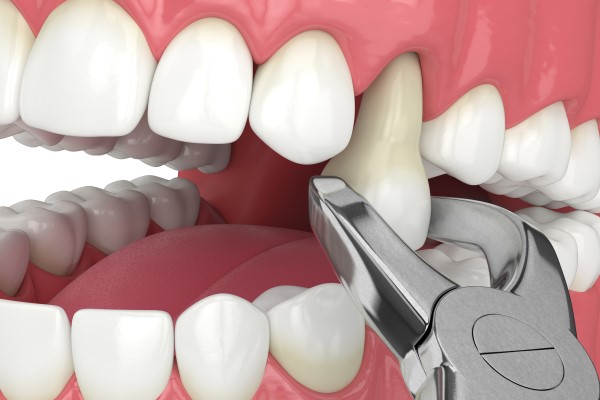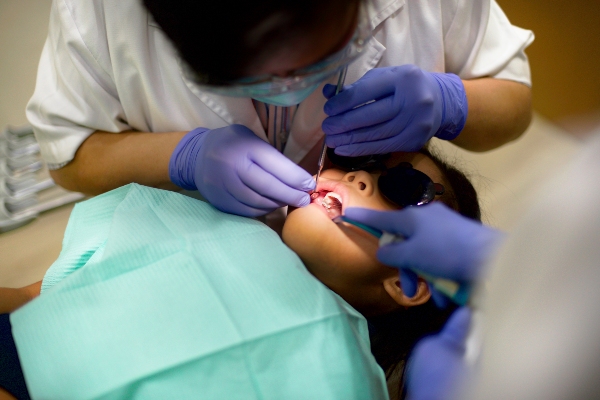Reasons for Pediatric Tooth Extractions
Baby tooth extractions, also known as pediatric tooth extractions are when a primary tooth is surgically removed. When a child's tooth is injured due to an injury, disease, or serious tooth cavity, tooth extraction is usually necessary. This is one of the most popular treatments in pediatric dentistry. Since the front teeth have a single root as opposed to the multiple roots in molars, they are easier to remove. Baby molars are often more commonly removed because they are vulnerable to decay.
The reasons for pediatric tooth extraction
The following are some of the most common reasons for pediatric tooth extractions:
Tooth decay
Tooth decay is common in primary teeth and often necessitates extractions. Cavities typically develop on a child's molars due to the fragility of infant tooth enamel. Furthermore, children frequently do not exercise proper dental hygiene, leaving their teeth more susceptible to decay.
Untreated tooth decay in children can progress to more serious oral health problems and illnesses. When a baby tooth becomes infected, bacteria can spread to neighboring teeth, negatively impacting developing adult teeth. Adult teeth can shift into the available space at the extraction site if a primary tooth is extracted due to severe decay, resulting in crooked or crowded teeth.
Gum disease
Gingivitis is a condition in which the gingival tissues become inflamed. Gum tissue can bleed, redden, and swell due to this condition. Pediatric periodontal disease in children might develop if gingivitis is not addressed. The gums and jawbone can also be affected by gum disease. In extreme situations, loose teeth, receding gums, and significant bleeding can occur. If the teeth do not fall out on their own, pediatric tooth extractions are usually required.
Injury or Trauma
Trauma or injury to a child's primary teeth, such as accidents, falls, or failed dental restorations, can cause damages. Pain and heightened sensitivity are frequent indications of a chipped, broken, or detached baby tooth.
Pediatric pulp treatment (baby root canal) or a full-coverage crown may salvage the tooth, depending on the severity of the injury. The tooth must often be extracted and replaced with a space maintainer until the adult tooth emerges.
Impacted wisdom teeth
Impacted wisdom teeth are third molars that have partially grown in or become lodged underneath the gums. In this situation, pediatric dentists recommend extractions to prevent the risk of disease and jaw misalignment.
If a child exhibits early indications of an impacted tooth or teeth at a young age, the teeth are frequently removed to avoid future oral health issues like gum disease, cavities, and root resorption.
Orthodontic treatment
Over-retained baby teeth first become loose then get tightened in the gums, inhibiting the emergence of permanent teeth. Dentists often suggest the extraction of these teeth to allow for the normal eruption of adult teeth. Dental crowding occurs if the primary teeth are not removed, which is a situation in which there is insufficient space on the jaw to accommodate every tooth.
In summary
If you believe your child needs pediatric tooth extractions, make an appointment with the dentist to learn about your choices.
Request an appointment here: https://www.hvkidsmiles.com or call Hudson Valley Pediatric Dentistry at (845) 363-4177 for an appointment in our Middletown office.
Check out what others are saying about our services on Yelp: Read our Yelp reviews.
Recent Posts
Dental fillings for kids are recommended for those with small cavities in their primary or secondary teeth. In order to understand their importance, parents must first understand the role of the teeth and the ramifications of cavities. This guide aims to help you understand why we recommend fillings for your kids and what to expect…
Dental fillings for kids can be nerve-wracking for some kids, likely due to the necessary tools. While we aim to make this simple process as smooth and painless as possible, we need your help. Getting a firm grasp on what your kids can expect during this procedure and how to prevent a future need for…
Dental fillings for kids restore the smile for years to come. Proper aftercare and consistent oral hygiene help to ensure your child gets the most out of their fillings. Thankfully, caring for these restorations is simple and straightforward, particularly with the help of a pediatric dentist.A dental filling is a dental restoration that “fills” cavities…
Dental fillings are a key part of protecting children’s oral health. When prevention efforts fail, this simple procedure stops cavities from doing further damage to dental health. Here, we take a closer look at the benefits of treating childhood tooth decay with dental fillings for kids.According to the Centers for Disease Control and Prevention (CDC),…


